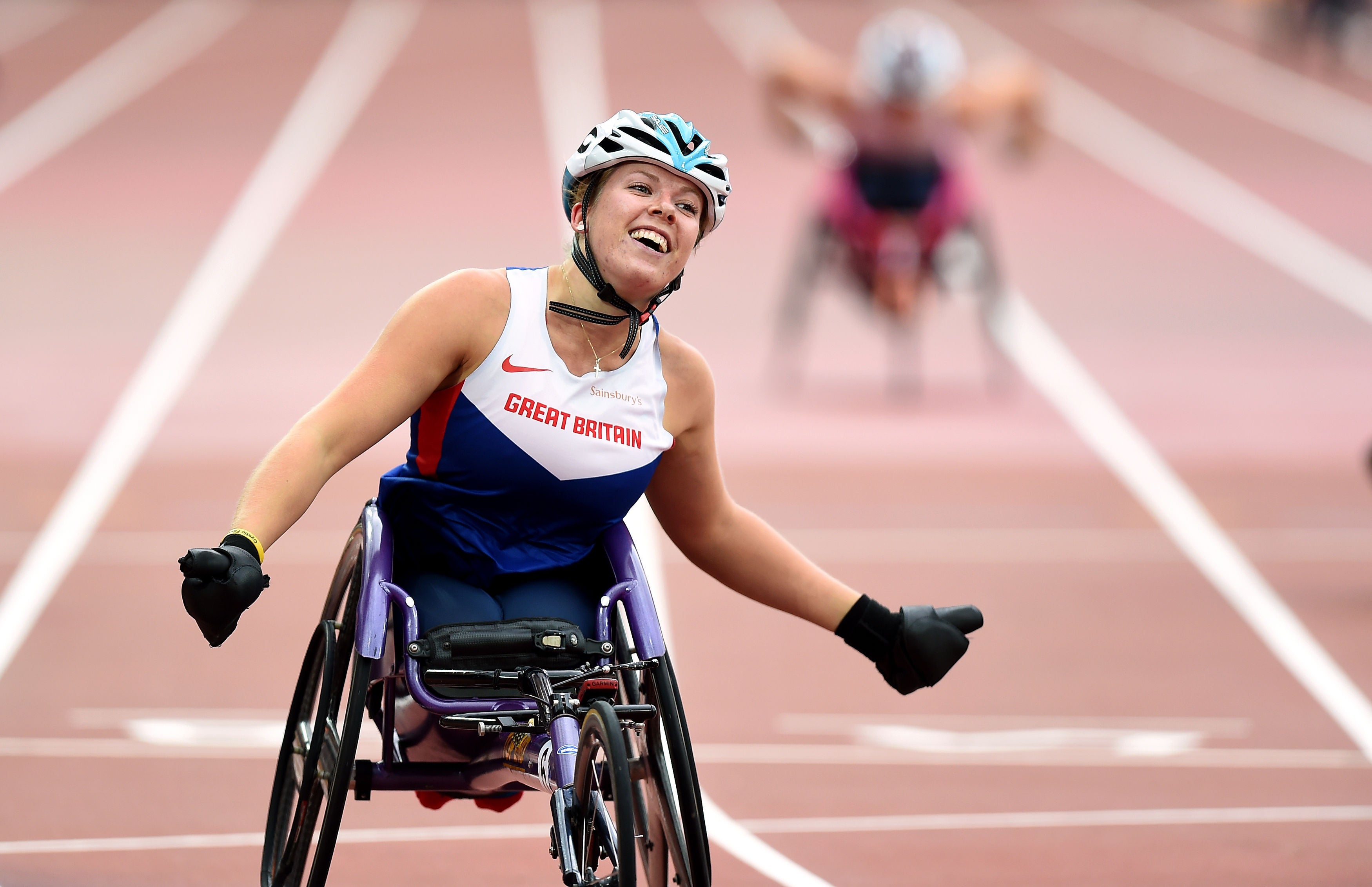Why do we put ‘superhuman’ Paralympians on a (non-accessible) pedestal?
Hannah Cockcroft, the UK’s superstar wheelchair racer, is to be applauded for drawing attention to an awkward truth – that when Paralympians are hailed for their achievements, it’s easier to ignore ‘normal’ disabled people. And I should know, says James Moore – I run the gauntlet every time I leave the house


In many ways, it is a statement that disabled people have been waiting to hear from a Paralympian.
“Britain is a really scary place to be as a disabled person right now. Paralympians are almost seen as different to the rest of the disability community. We are shown for what we can do – and everyone else with a disability is almost criminalised for what they can’t do, or struggle to do.”
So said Hannah Cockroft, the superstar Paralympic wheelchair racer, in an interview with BBC Sport. And yes. Yes! YES!
From conversations I’ve had, there is a certain resentment felt towards the “superhumans”, or whatever word Channel 4 uses to promote its coverage of the Paris 2024 event this year.
As Cockroft states, the achievements of these athletes are widely recognised. They are lauded for what they do. And so they should be. It is quite right that they are celebrated in the same way we celebrate sportspeople without disabilities.
Trouble is, Cockcroft is also correct in saying that they are often placed in a different class as a result. Moreover, their success is frequently used to suggest that all is fine and dandy in disabled Britain, particularly by politicians who are very fond of having their pictures taken with them.
While this is going on, the rest of us are ignored at best, sometimes demeaned, occasionally verbally attacked, victimised – even assaulted.
As a hobbyist wheel runner myself – I use a chair with a third wheel to exercise in a local park – I regularly have run to a gauntlet. Insults, abusive comments, threats, the works. On one occasion, it got so bad, I had to call 999. I’ve changed the time I go out to avoid a certain group of ageing dog walkers who spread across the path, preventing me from getting around them on wet and muddy days, when taking to the grass is challenging, even with my set-up. Every time I see them, I get dirty looks, nasty comments and, on one occasion, the threat of assault. I intend to switch to noise-cancelling earphones so as not to hear the brickbats murmured by other park users.
I’m wary when people use the word “scary” to characterise life as a disabled person. Progress has been made in certain areas. Lifts will often tell you the floor you are on, which is important for those with visual impairments. Ramps have become more commonplace – although access is still imperfect in many places. Hell, before 1993, wheelchairs were barred from the London Underground as a result of “fire regulations”. Today, we have the Equality Act, “reasonable” adjustments, and some helpful court rulings on our side.
However, on the flip side, it regularly seems that disabled people are at the back of the queue when discussions concerning inclusion and/or equality are held. We’re lucky if we get a mention. And it does seem that we are going backwards in many ways.
Cockroft, in her interview, cited the downgrading of the post of minister for disabled people by Rishi Sunak. I’m a confirmed cynic when it comes to that job. I can’t recall anything any of the recent occupants of the post have done to have made any positive difference to my life, even when it came with minister of state rank. It doesn’t help that the door to their office at the Department for Work & Pensions has been revolving at such a rate, it’s a wonder the honourable ministers aren’t themselves left disabled by vertigo.
But, I take the points made by those who have highlighted the problem of Mims Davies, the incumbent, being a lowly parliamentary under secretary of state, the lowest rung on the ministerial ladder. This says something about how the government views the job and the concerns of the people Ms Davies is supposed to be looking after. And it isn’t good.
My own experience of having to call out the rozzers when I’ve simply been trying to use the local park for one of its intended purposes – encouraging health and fitness and getting outdoors – does rather confirm Cockroft’s view that it is scary. And we are being left behind.
I believe Britain’s disabled people should be – if you’ll forgive me for using the phrase – “out and proud”. But it is hard to do that when that puts you at risk of threats or abuse, if not actual violence. It really is getting frightening out there. I do feel nervous when I’m on my own, and not with friends or relatives who I can count on to have my back.
I had a glimpse of a world that (more or less) works over the festive period. Some good experiences going out, including on my own. But I also know that there is a high likelihood that I am going to encounter problems whenever I leave the house. This means I’m now running the risk of an anxiety attack when I do. Not kidding.
So I welcome what Cockroft said, and her recognition of her (relatively) privileged status. We need more people like her to speak up. I’m no superhuman. I just want to be able to go out for a wheel run in peace. This is not too much to ask. But right now, I can’t always do that.
Join our commenting forum
Join thought-provoking conversations, follow other Independent readers and see their replies
Comments
Bookmark popover
Removed from bookmarks